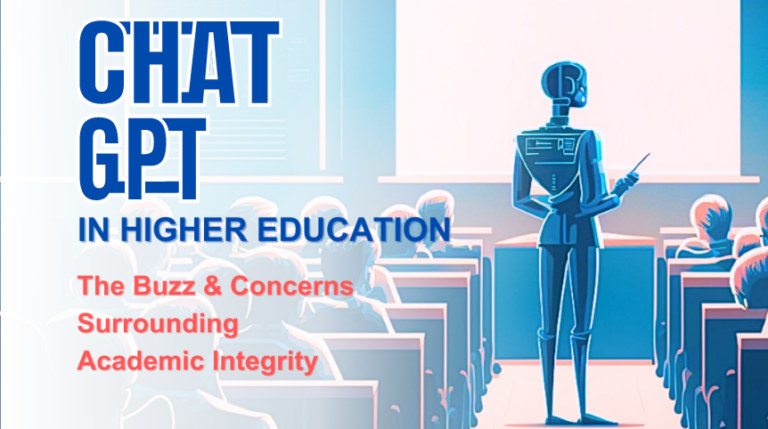
ChatGPT in Higher Education: The Buzz & Concerns Surrounding Academic Integrity
The introduction of ChatGPT in higher education has generated excitement for its potential to enhance learning and collaboration. However, concerns about academic integrity necessitate careful consideration and proactive measures. Balancing technological advancements with upholding academic standards is crucial in navigating the evolving educational landscape in the age of AI. This week’s Ultimate Insight explores the dual impact of ChatGPT, examining its positive influence and the challenges it poses to maintaining academic integrity. ChatGPT’s versatility has made it a game-changer in higher education, with professors exploring its applications in lesson planning and student feedback. Despite its potential benefits, concerns persist regarding the potential misuse of the technology for academic dishonesty.
What are the Concerns Regarding Academic Integrity in Higher Education?
Despite the positive reception, concerns have surfaced regarding the potential misuse of ChatGPT for unethical purposes, particularly in the form of academic cheating. Reports from some educational institutions indicate instances where students have utilized ChatGPT to complete assignments, essays, and even exams.
How are Institutions Addressing these Concerns? Technology itself can play a role in addressing the issue, with the development of plagiarism detection tools specifically designed to identify content generated by AI models like ChatGPT. Such tools can aid educators in differentiating between original student work and content produced by automated systems. Striking a balance between embracing technological advancements and upholding academic standards will be crucial in navigating the evolving landscape of education in the age of AI.
